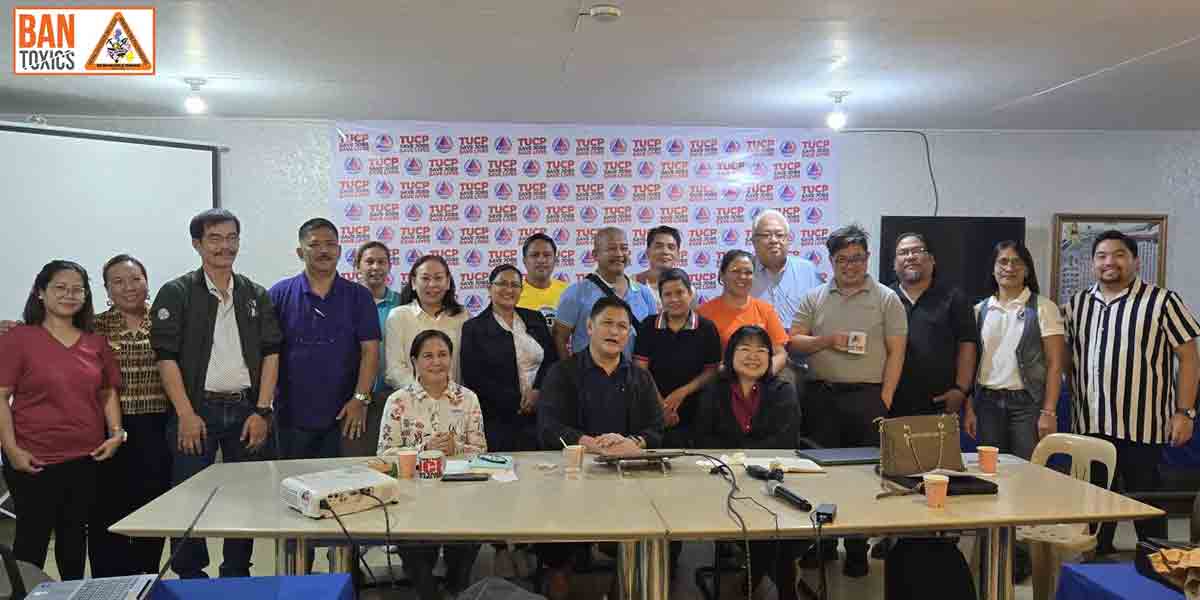Miners push for updates to Small-Scale Mining Law
Daily Guardian | September 26, 2024

The National Coalition of Small-Scale Miners in the Philippines, Inc. (NCSSMPI) is pushing for long-overdue reforms to Republic Act (RA) 7076, or the People’s Small-Scale Mining Act of 1991, following a two-day roundtable discussion held in Quezon City.
The meeting, which took place on September 19 and 20, 2024, gathered key stakeholders, including representatives from the Associated Labor Unions-Trade Union Congress of the Philippines (ALU-TUCP), International Labor Organization (ILO), BAN Toxics, and the Mining and Geosciences Bureau (MGB) of the Department of Environment and Natural Resources (DENR).
The discussion focused on reviewing House Bill (HB) 6408, a proposed amendment to RA 7076, which was approved by the House Committee on Environment and Natural Resources last August.
“The 30-year-old RA 7076 is already outdated,” said Josephine Balonga, president of NCSSMPI. “Its provisions generally hinder the full potential of the small-scale mining sector.”
Balonga emphasized that small-scale miners face significant legal and financial hurdles under the current law, particularly when it comes to formalizing a Minahang Bayan or People’s Mining Area.
“The application requirements for legalizing or formalizing small-scale mining operations are nearly the same as those for large-scale mining,” she explained. “This is unfair and difficult for the sector because small-scale miners do not have the same resources as large-scale operations.”
Outdated Definitions and Legal Barriers
RA 7076 currently defines small-scale mining as operations that rely solely on manual labor and rudimentary tools.
The restriction, according to Balonga, prevents small-scale miners from modernizing their processes and limits their ability to extract minerals beyond gold.
The current law also mandates that small-scale miners sell their gold to the Bangko Sentral ng Pilipinas (BSP), but miners argue they need more flexibility in managing their production and income.
HB 6408, filed by Deputy House Speaker Raymond Democrito Mendoza of the TUCP Partylist in 2022, seeks to address these issues.
The bill aims to lower the costs of establishing a Minahang Bayan, extend the validity of mining contracts, and revise the definition of small-scale mining to allow for the use of machinery and environmentally sustainable practices.
Balonga reiterated the Coalition’s desire to align small-scale mining operations with national development goals. “As small-scale miners, we aim to contribute directly to our nation’s wealth while ensuring environmentally sustainable mining practices. But we can only do this if we are formalized and supported by our government.”
The Human Cost of Inaction
The stakes are high for the estimated 500,000 small-scale miners in the Philippines, many of whom are mired in poverty.
Millions more rely on the industry for their livelihoods, according to data from BAN Toxics, a nonprofit advocating for sustainable mining practices.
However, the lack of regulation has led to serious concerns about working conditions, including incidents of child labor, the widespread use of toxic mercury, and unsafe mining operations that have resulted in fatal accidents.
“The government should also explore ways to support mercury-free technologies for small-scale miners,” said Arleen Honrade, of BAN Toxics’ Community Development Unit and Secretary of the Coalition.
The organization has long advocated for safer and more sustainable alternatives to mercury, which poses serious health and environmental risks.
Small-scale mining accounts for an estimated 70-80% of the country’s gold reserves. Despite its contribution to the economy, the sector remains largely informal and underregulated.
As the Coalition gears up for intensified lobbying efforts in the coming weeks, they are hopeful that reforms to RA 7076 will finally provide the legal recognition and support that small-scale miners need.
Next Steps for Reform
Balonga confirmed that the Coalition will step up its campaign to gather support from lawmakers.
The proposed amendments in HB 6408 are seen as critical to unlocking the sector’s full potential and addressing its longstanding challenges.
With over half a million miners depending on the passage of this bill, it is clear that legislative reforms are not just a matter of economic policy, but also of social justice and environmental sustainability.
The NCSSMPI has been advocating for these changes since its founding in 2016. As the push for reform gains momentum, the Coalition hopes to see a more equitable and sustainable future for small-scale mining in the Philippines.
Source: Daily Guardian

